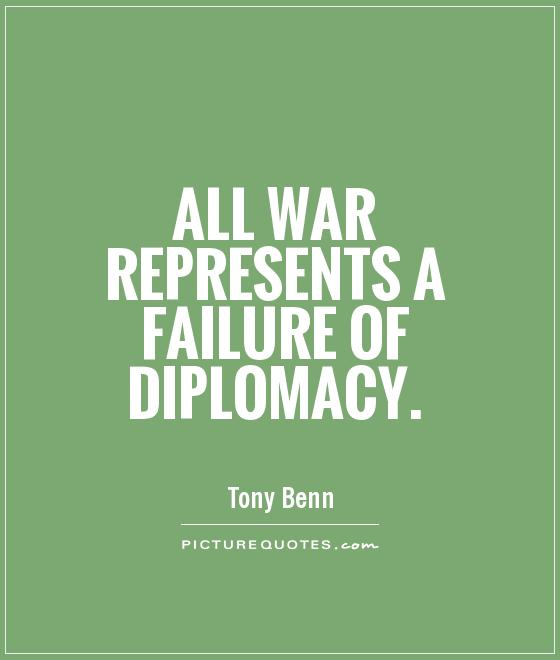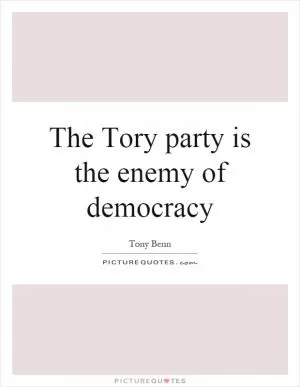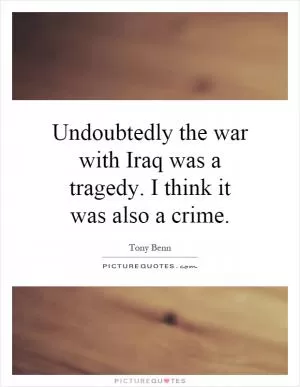All war represents a failure of diplomacy

All war represents a failure of diplomacy
Tony Benn, a British politician and a prominent figure in the Labour Party, once famously said, “All war represents a failure of diplomacy.” These words hold a profound truth that resonates with the realities of international conflicts and the consequences of resorting to violence as a means of resolving disputes.In the context of Benn’s words, it is important to understand the role of diplomacy in preventing conflicts and promoting peace. Diplomacy is the art of negotiation and communication between nations to address differences and find mutually acceptable solutions. It involves dialogue, compromise, and the use of diplomatic tools such as treaties, agreements, and international organizations to prevent conflicts from escalating into war.
When diplomacy fails, nations often resort to military force as a last resort to achieve their objectives. War, with its devastating consequences of death, destruction, and suffering, represents a failure of diplomacy to resolve conflicts peacefully. Instead of finding common ground through dialogue and negotiation, parties involved in a conflict choose to engage in armed conflict, leading to a cycle of violence and destruction that can have long-lasting repercussions for generations to come.
The history of warfare is filled with examples of how diplomatic failures have led to devastating wars and conflicts. From the World Wars to the Cold War, from the conflicts in the Middle East to the tensions in the Korean Peninsula, the failure of diplomacy has often resulted in catastrophic consequences for millions of people around the world.












 Friendship Quotes
Friendship Quotes Love Quotes
Love Quotes Life Quotes
Life Quotes Funny Quotes
Funny Quotes Motivational Quotes
Motivational Quotes Inspirational Quotes
Inspirational Quotes